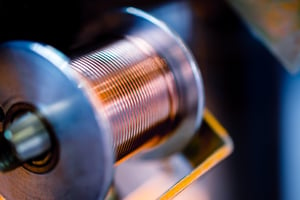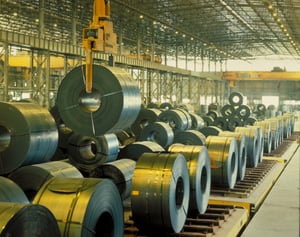
on June 6, 2024 | 4 min. read


If you’ve spent time in the metal supply industry, you may have noticed three letters strung together: MOQ or “minimum order quantity."
It’s a phrase we use often. But what does MOQ mean in manufacturing? And how does Mead Metals’ MOQ policy benefit you?
Here’s why this purchasing feature exists and how it can benefit you as a customer.
MOQ usually stands for the minimum amount of product (metal, in our case) a manufacturer will allow a customer to purchase in order to fulfill their order. Every single metal at Mead Metals has its own MOQ, which is listed on its individual product page.
For example, our minimum order quantity for brass is 5 to 7 pounds. This concept isn’t unique to metal suppliers and is found among wholesalers and providers of nearly all raw materials.
MOQs protect wholesalers from running a net loss on sales, especially on lower-cost items where profit margins are slim. Every deal made with a wholesaler involves labor and other costs associated with sourcing, processing, selling, packaging, and shipping those goods. At a certain (lower) price point per unit, it becomes unprofitable or even detrimental to the wholesaler to sell below their MOQ.
MOQ also helps wholesalers move their inventory more quickly. It costs money to store goods, and sometimes those goods have specific (and expensive) care requirements to keep them in a sellable condition. The sooner wholesalers can do a full turnover of their inventory, the less they’re paying for storage and maintenance.
We don’t turn down material orders based on size at Mead Metals. Instead, we do our best to keep our MOQ as low as possible so that we can help you finish all types of projects. Here are a few of the perks of having a supplier with low MOQs:
 Instead of being constrained to predefined package sizes or quantities, buyers can order the exact volume they need, ensuring optimal utilization of resources and minimizing waste.
Instead of being constrained to predefined package sizes or quantities, buyers can order the exact volume they need, ensuring optimal utilization of resources and minimizing waste.
 With MOQs, buyers can minimize excess material handling, storage, and disposal costs, leading to more efficient inventory management practices.
With MOQs, buyers can minimize excess material handling, storage, and disposal costs, leading to more efficient inventory management practices.
With smaller quantities, customers can significantly lower shipping costs by using UPS instead of a trucking service. Take for instance our Cold Rolled 1008/1010 Steel, which you can purchase from Mead Metals in quantities around 30 to 60 pounds for a minimum lot charge. If you order 30 pounds of CRS, it can be shipped via UPS, saving you money on transport.
We take pride in offering low quantities to our customers. Let’s look at how our MOQ policy works.
If you’re looking to purchase 4 pounds of brass, full hard, at 0.025 gauge, we can provide that quantity at those specifications and you would be charged at the current minimum lot charge (as if you had ordered somewhere between 5 and 7 pounds).
Every metal product we provide has its own MOQ, which is displayed on each metal’s product page. While we can (and will) support orders for quantities smaller than this, our minimum lot charges are often budget-friendly and can be easily found by contacting us. Additional variables do apply, and the final cost will depend on material thickness, width, and additional processing.
